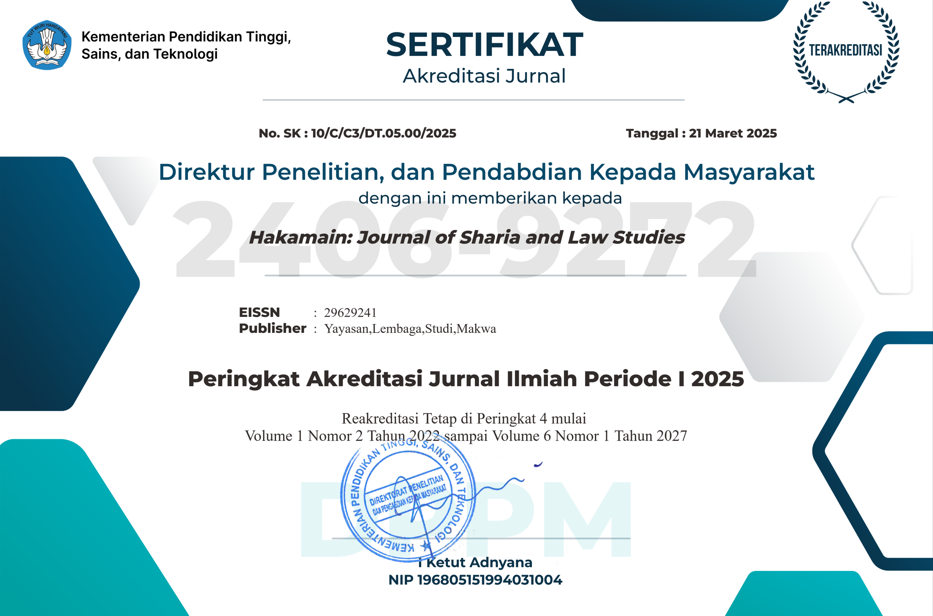Digital Behaviorism among Muslim Communities on Social Media from the Perspective of Islamic Law
DOI:
https://doi.org/10.57255/hakamain.v4i1.1360Keywords:
Big Data, Digital Behaviorism, Islamic Law, MoralAbstract
This study aims to analyze the transformation of Islamic law in response to the growing influence of digital behaviorism within modern Muslim communities, particularly through behavioral patterns observed on social media platforms such as Facebook and X (formerly Twitter). Digital behaviorism, rooted in classical behaviorist theories of Watson and Skinner, interprets human actions as stimulus-response mechanisms. In the digital era, this concept has evolved into data-driven models powered by algorithms that track, predict, and influence user behavior. Using a qualitative approach enhanced by big data analysis, this research collects and examines digital user interactions through sentiment analysis, metadata tracking, and keyword mapping related to religious expressions, ethical judgments, and social engagement. The findings show that digital behaviorism reduces human conduct to observable patterns and external stimuli, excluding key Islamic legal concepts such as niyyah (intention), ikhtiyar (free will), and taklif (moral responsibility). This creates a fundamental epistemological conflict with Islamic law, which views human beings as spiritual and moral agents accountable to divine guidance. The study concludes that while digital behaviorism provides useful insights for understanding contemporary social behavior, it cannot be used as a foundational framework for Islamic legal reasoning. Instead, it should serve as a supplementary analytical tool that supports a broader, value-based legal framework rooted in the objectives of Islamic law (maqasid al-shariah). The academic contribution of this research lies in its proposal for an integrative model that bridges modern behavioral science and Islamic jurisprudence, offering a responsive and ethically grounded legal approach in the digital age.
Downloads
Published
How to Cite
Issue
Section
Citation Check
License
Copyright (c) 2025 Firdaus Arifin, Deni Fadly, Habibul Akhiar, Damarkunsi Majasius, Sri Rahmadhani

This work is licensed under a Creative Commons Attribution-ShareAlike 4.0 International License.






